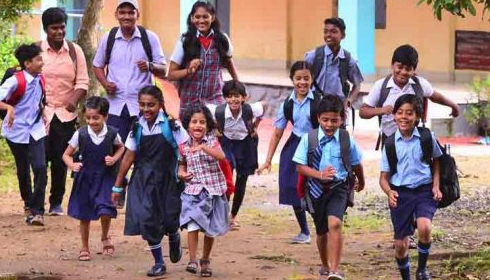
Jaundice Outbreak Hits Kerala: Over 100 Infected, Accusations and Preventive Measures Intensify
A severe jaundice outbreak has hit two Kerala regions, Paleri Vadakkumbad and Kozhikode's Kommeri, causing an increase in infections and raising questions about the quality of local drinking water. The incident has triggered immediate health precautions and accusations of mishandling from local officials.
According to local media reports, Paleri Vadakkumbad Higher Secondary School has diagnosed jaundice in approximately 50 children. Local authorities responded by closing cool bars in the vicinity, citing concerns that contaminated food or beverages may have contributed to the outbreak. Hospitals in the vicinity are currently treating the affected children.
Initial testing on the school well's water revealed that it was not the source of the virus, allaying concerns about a tainted school water supply. However, this has done little to alleviate concerns, as additional tests and investigations into other potential sources are ongoing. The school administration and health officials have agreed to perform a full screening of all kids in order to prevent the sickness from spreading further.
A local health officer stated, "We cannot take any chances with the health of the youngsters. Despite ruling out well water, we are expanding our investigation to explore other potential sources of contamination.
In Kozhikode's Kommeri, the jaundice outbreak has reached critical proportions, with six additional patients recently diagnosed, bringing the total number of cases to 53. Among them is a 27-year-old woman who is in serious condition and has been moved to Kozhikode Medical College for further treatment. This alarming situation has emerged during a period of intensive preventive actions implemented by local health experts.
Two wells in the vicinity tested positive for bacterial contamination, leading to their sealing and the cessation of pumping. Authorities are adopting preventative measures, but the disease's spread despite preventive efforts raises concerns about the effectiveness of local initiatives.
A health care provider said, "We have been working tirelessly to ensure the area's safety, but the presence of bacteria in multiple wells suggests there may have been some oversight in the cleaning process."
The Kommeri epidemic has sparked a blame game between the Kozhikode Corporation and the local People's Committee, which manages the region's water supply. The corporation blamed the People's Committee for failing to maintain sanitary standards for the Pratikottil drinking water project, which provides water to 265 households. According to sources, the project purportedly brought water from four wells to a community tank but had not cleaned two wells and the tank in years.
In response, the People's Committee disputed the charges, claiming that they followed proper procedures to clean the wells and water tank. The committee also claimed to have obtained the necessary materials for water purification as part of the pre-monsoon cleaning activities, but the company did not examine the sanitisation procedure.
A citizen who preferred to remain anonymous said, "It's straightforward for the government to criticise the People's Committee, but where were they when we needed proper inspections? This is a shared obligation, and we bear the cost."
The Kozhikode Corporation has taken further precautions in response to the charges, such as organising medical camps to assure citizens' safety. The firm has also promised to increase checks of the region's water supplies while assuring the public that the matter is under control.
"We are committed to ensuring the health and safety of the residents," claimed a Kozhikode Corporation spokeswoman. "Despite the finger-pointing, our focus remains on providing the necessary medical care and addressing the concerns of the people."
The situation in Kommeri remains dire, with 25 people currently receiving treatment for jaundice. A 23-year-old patient is also in severe condition, highlighting the severity of the outbreak.
Locals are still genuinely concerned about a lack of accountability, and it is becoming increasingly frustrating that both the People's Committee and the corporation appear to be more intent on assigning blame than finding a solution.
There is a desire for increased transparency in crisis management as preventive measures intensify. The impacted communities are demanding more frequent water testing, improved sanitation, and a coordinated response from all stakeholders.
According to one homeowner, "This isn't about blaming one group over another; it's about saving lives." We need to work together to halt this before it worsens."
The jaundice outbreak in Paleri, Vadakkumbad, and Kommeri emphasises the crucial need for adequate water management and preventive health measures. As the incidence of illnesses increases, so does the need for a comprehensive and collaborative approach to addressing the underlying causes. While local officials work to contain the situation, the tension between various factions highlights the importance of responsibility and open communication during times of crisis.